Life
Sign up for our newsletter
We summarize the week's scientific breakthroughs every Thursday.
-
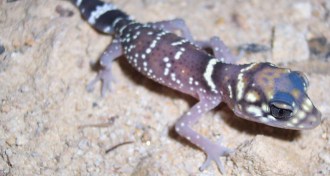 Animals
AnimalsSnake and lizard ancestor may have birthed live young
Over millions of years, reptiles may have switched back and forth between laying eggs and giving birth to live babies.
-
 Microbes
MicrobesA newfound respect for the microbial world
Despite what many people think about humans’ place in the scheme of things, scientists are finding more evidence that we live in a world of microbes.
By Eva Emerson -

-

-
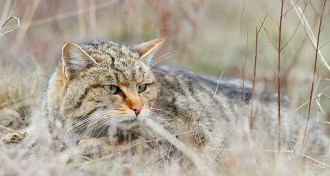 Animals
AnimalsChina trumps Near East for signs of most ancient farm cats
Earliest evidence found for grain as a force in feline domestication.
By Susan Milius -
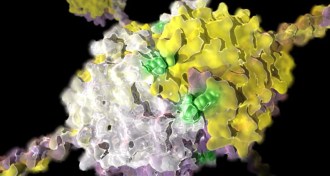 Chemistry
ChemistryAncient bond holds life together, literally
The chemical link between sulfur and nitrogen in animal tissues and organs may have sparked the assembly of single cells into complex animals.
By Beth Mole -
 Health & Medicine
Health & MedicineDog dust may benefit infant immune systems
Microbes from pet-owning houses protected mice against allergy, infection.
By Nathan Seppa -
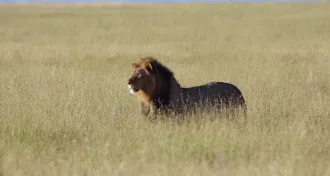 Animals
AnimalsProtecting wildlife with legal hunting is a complicated issue
Trophy hunting is legal in some African nations, but making the system work can be difficult, especially when data is lacking on how many animals exist.
-
 Neuroscience
NeuroscienceThe Aesthetic Brain
How We Evolved to Desire Beauty and Enjoy Art by Anjan Chatterjee.
By Bryan Bello -
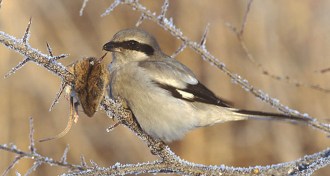 Animals
AnimalsA gory 12 days of Christmas
Insects and spiders are among the biggest gift-givers, often as part of mating, and anything from cyanide to a wad of saliva can be a present.
-
 Genetics
GeneticsYou are what your dad ate, perhaps
Your development is affected by what your mother ate while she was pregnant with you. Is it also affected by what your father ate? A new study suggests that folate deficiency in dads can affect their offspring through epigenetic changes.
-
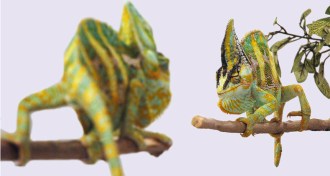 Animals
AnimalsBefore a fight, chameleons engage in colorful communication
Before one chameleon rumbles with another, he’ll display his side and change his stripes, indicating his willingness to fight.